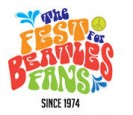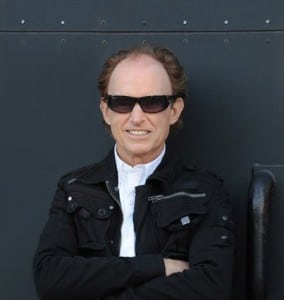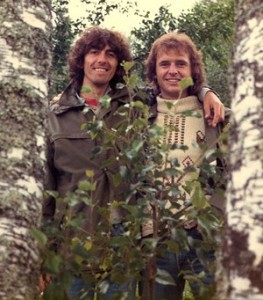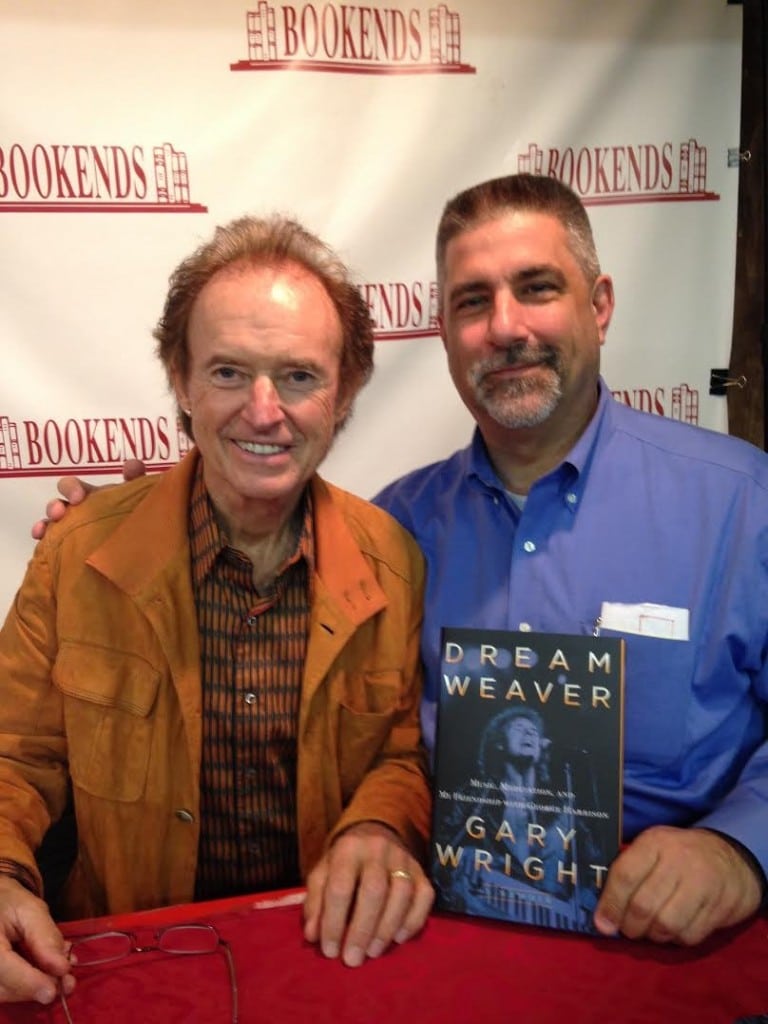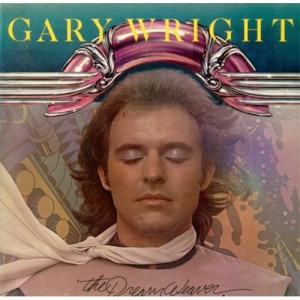-
-
Gary Wright, born on April 26, 1943 in Cresskill, New Jersey, is a musician who is best known for his hit songs "Dream Weaver" and "Love Is Alive," but his history with a couple of Beatles is a rich one. Wright played on George Harrison's iconic triple-album All Things Must Pass, and played piano on Harry Nilsson's 1971 hit "Without You." Wright also played on Ringo Starr's huge hits "It Don't Come Easy" and "Back Off Boogaloo" and toured with Ringo & His All-Starr Band in both 2008 and 2010.
Gary's autobiography, Dream Weaver: A Memoir; Music, Meditation, and My Friendship with George Harrison, was released in October of 2014. Friend of the Fest Tom Frangione says Gary's wonderful book "provides a refreshing departure into something more intimate and life-affirming, examining how a spiritual bond so profoundly impacted one man’s life and career, and by extension, many others through the music that resulted."Scroll to the bottom of the page for the full review of Gary's tremendous autobiography...
FESTS ATTENDED:
2010 - Chicago
2011 - New York Metro
2015 - New York MetroOFFICIAL FEST VIDEOS:
Performing "Dream Weaver" with Liverpool at the 2015 New York Metro Fest -
FEST VIDEOS FROM FANS:
Performing "To Discover Yourself" with Liverpool at the 2010 Chicago Fest -
CLASSIC GARY WRIGHT VIDEOS:
Performing "Two Faced Man" with George Harrison live on the Dick Cavett show in 1971 -
The official music video for "Dream Weaver" -
GARY WRIGHT ON GEORGE HARRISON'S "ALL THINGS MUST PASS" ALBUM:
"Isn't It A Pity" (Gary on piano) -
Gary Wright on the web: thedreamweaver.com
Gary Wright on Facebook: Facebook.com/garywright.thedreamweaver
Gary Wright on Twitter: @garyxwrightReview of Dream Weaver: A Memoir; Music, Meditation, and My Friendship with George Harrison:
By Tom Frangione
Since the advent of Ringo’s first All Starr Band in 1989, I thought Gary Wright would be a great addition to the touring ensemble. He fit the bill perfectly – a handful of Billboard chart hits (including of course his monster hit “Dream Weaver”), and a pedigree very much tied to the post-Beatles story, having played on the vast majority of George Harrison’s solo albums, and by extension on the early singles George produced for Ringo, “It Don’t Come Easy” and “Back Off Boogaloo”. Astonishingly, it took nearly 20 years for fans to catch Gary onboard the Ringo carousel.
And while this chapter in his life is covered rather succinctly in Wright’s new book “Dream Weaver - Music, Meditation and my Friendship with George Harrison (A Memoir)”, the rich life and career of this multitalented singer/songwriter/producer, and the driving forces behind them, make for a read that is equal parts informative, entertaining and inspirational.
We learn of Gary’s early life in Cresskill, NJ and the encouragement his mother provided for Gary and his sisters towards the performing arts, leading to his landing a role in the Broadway show Fanny in his pre-teen years. Starring alongside Florence Henderson, the ensemble appeared on the Ed Sullivan Show in 1955. Yes, it was a point of levity between Gary and George & Ringo that he played the Ed Sullivan show before they did ….
The lone survivor of a car crash that took the lives of two teenage friends, his spiritual quest commenced early on, setting the stage for his embrace of the Master’s plan throughout his life.
Moving to Germany to pursue music after an early stab at medical studies, he formed the band Spooky Tooth, touring alongside Joe Cocker, Jethro Tull, Steve Winwood and Traffic. In Spooky Tooth, he would collaborate with Mick Jones, who would later gain fame in Foreigner. His friendship with Klaus Voorman would lead to his introduction to the Beatles’ world, being invited to join Klaus, George, Ringo and others for the recording sessions that became the “All Things Must Pass” album. Gary recalls the initial session, playing piano on “Isn’t It A Pity”, and George’s warm encouragement while learning the arrangement, mitigating producer Phil Spector’s dominating task-master approach to the session. From there, a lifelong bond was cemented.
George invited Gary’s band Wonderwheel to accompany him on the Dick Cavett show in 1971. Billed as “Gary Wright & Wonderwheel – and Friend”, Harrison played lead guitar alongside Wright’s vocal take on the brilliant “Two Faced Man”.
Wright’s career at this point involved weaving in and out of Spooky Tooth, Wonderwheel, and increasing amounts of session work, including playing the trademark piano on Harry Nilsson’s classic recording of “Without You”. After releasing two early solo albums, 1975 would see the release of his breakthrough record “The Dream Weaver”, boasting the title cut as well as the radio favorite “Love Is Alive”. World tours (with Peter Frampton, Yes, and others) and all the trappings such success would bring, while tempting, did nothing to alter his moral and spiritual compass.
If anything, they seemed to fortify his belief in something much bigger. Indeed, among the many “connect the dots” examples detailed in the book, Gary points out that his first song (“Sunshine Help Me”, written in 1966) was sampled in the song “No Church In The Wild”, which would appear on a #1 album, appear in two films, and win a 2013 Grammy Award.
Beatles fans and scholars will find new information along the way, including that he was invited by John Lennon to play on “Imagine” but had conflicting scheduling commitments for a Spooky Tooth tour. Lennon, interestingly, had used the term “dream weaver” in his song “God” on the 1970 Plastic Ono Band” album.
And while he did not appear at the Concert for Bangladesh, he recalls playing piano on the studio recording, which is generally attributed to Leon Russell.
Throughout, Gary reinforces his belief that he and George, in a karmic way, were meant to meet in this lifetime. Tales of their journeys to India underscore the essence of a spiritual homecoming (oddly, I get similar feelings when I travel to London …), and provide a shared intimacy with some touching, funny, and mostly unseen photos from these sojourns. Along the way, his reverence for George – Beatle, collaborator, friend, kindred spirit – permeate the pages.
Even the song “Dream Weaver” bore Harrison’s influence, as Wright would recall when introducing the song each night of the 2008 and 2010 All Starr Band tours:
“George invited me to go to India with him, and as a means of introducing me to the philosophy of India, he gave me some literature, one of which was a book of poems. I was browsing through it one night, and I came across this line that said ‘when at night, my mind weaves dreams’, and I opened up my songwriting journal and I wrote down the words ‘dream weaver’ “.
Of course, after the rousing applause that would follow each performance of the song, Ringo would lament to Gary, “George Harrison never gave me no damn book”.
The dream is indeed not over, as Gary is promoting the book doing “storytellers” type multimedia concerts, performing live, showing slides and reading select passages from its pages. Among the songs performed in the show is “To Discover Yourself”, a Harrison co-write from the early 70’s which Gary did not record until doing so in demo form on 11/29/01, the day George passed. While that demo appears on Gary’s 2010 album “Connected”, a newly recorded version with Ringo Starr on drums is included with the digital version of the book.
Amidst the flurry of Beatles biographies and reference books in this 50th anniversary celebration year, “Dream Weaver” provides a refreshing departure into something more intimate and life-affirming, examining how a spiritual bond so profoundly impacted one man’s life and career, and by extension, many others through the music that resulted.




